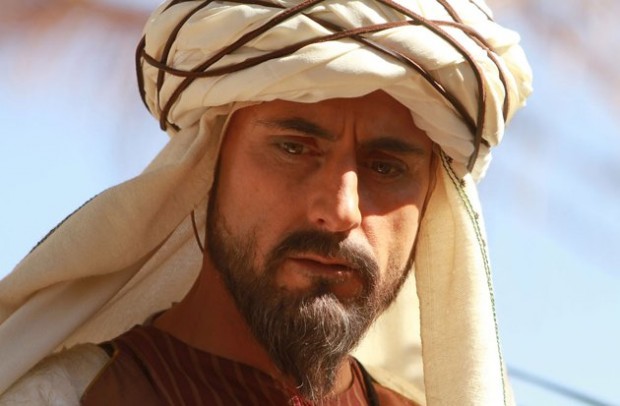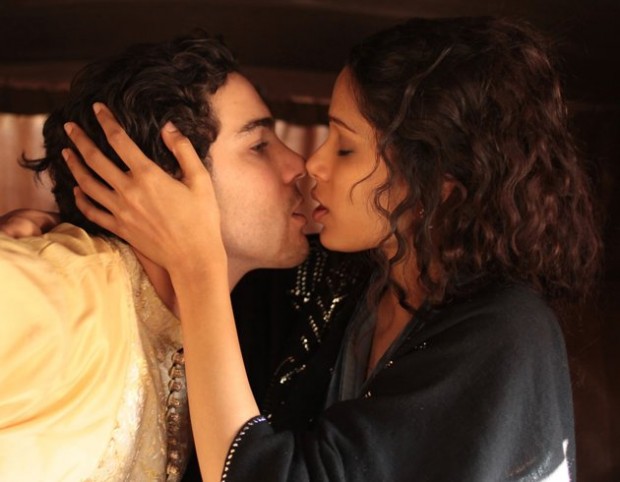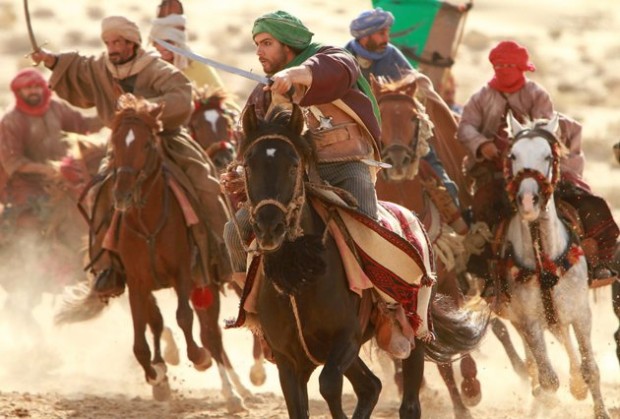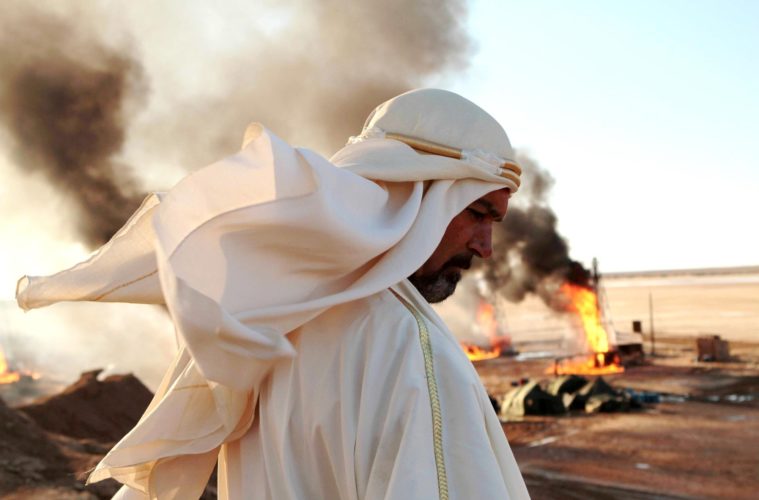
Many know today’s Arab countries in the Middle East to be some of the most oil-rich in the world, but you don’t often see how it came about. Working off a novel that was inspired by two clans struggle over land in the Middle East is writer/director Jean-Jacques Annaud‘s Day of the Falcon. The film puts Mark Strong and Antonio Banderas in charge of two kingdoms that are at odds with how the Western world is influencing them. I recently was able to chat with Annaud over the phone and we talked about the pressures of casting big names in his films, why they didn’t film it in Arabic and instead opted to shoot in English, the response of the countries of origin to his films, the effort he went through to capture the diversity of the Arab world, and much more.
The Film Stage: So, where are you at right now?
Jean-Jacques Annaud: I am going to leave for China in a few days. I am filming a movie called Wolf Totem from a quite wonderful best-selling novel. Actually, the best best-selling novel ever in China. It’s quite an honor to go back to that country that I’m very fond of.
 I was reading that Day of the Falcon was an Arab financed film?
I was reading that Day of the Falcon was an Arab financed film?
No. No no no no. It’s not Arab financed. Universal and Warner Bros. Europe financed this movie. We have a small mention from Qatar because I shot one fifth in the dunes of Qatar. They supported us over there. But it’s not at all an Arab financed movie. Not at all.
Interesting.
My producer, Tarak Ben Ammar, is a famous French guy of Tunisian origin. But the money is not coming from the Arab world.
I noticed during the credits that it said almost everything was shot on location.
Yes, correct.
You didn’t use any sound stages?
Well, I did use some sound stages in Hammamet in Tunisia. I recreated one of the cities, which was built on a back lot in Hammamet. It was entirely built by a Tunisian crew under the supervision of the French crew. I have a few interiors that were also built on those sound stages. But nothing was shot in Europe.
As I’m watching this movie, the film is full of English dialogue. Is that the only language you shot in? Did you dub it in Arabic?
I shot it in English for the simple reason that shooting in Arabic would make it, surprisingly, more difficult to understand for Arab audiences. As you probably know, the Arabic language has so many different accents that the Lebanese cannot understand Moroccans, for instance. So the movie has been dubbed in various Arabic dialects and released over there in Arabic language by various actors in the region. Yeah, it’s strange. I must say, my initial instinct was to shooting it in Arabic. Then it became the problem of, “Which Arabic?” One of the problems was that in the Arabic peninsula, where the story takes place, there are not enough actors who speak the same kind of language. You have quite a different accent from Qatar or Saudi Arabia, or in Oman. And, of course, very different accents when you go to Egypt or Tunisia.
A lot of the extras looked to be of Arabic descent. Was it a big mixture of origins on set?
It was a great mixture. I wanted to have a cast that would reflect the population of Arabia. Most people don’t know that a vast region of this world is populated by Black people coming from Ethiopia and Zanzibar. From Indian people coming from India and Pakistan. From people from Europe, all the way back from the Crusaders. So a lot of people have blue eyes. That’s why I cast someone like Mark Strong. It’s also populated by the nomads coming from the Sahara. Therefore, Algeria and Tunisia applies to the population of this part of the world. I had actors from Turkey, Lebanon, Egypt, Algeria, Spain… some from Spain, which has been Arabic for 30 years. From England… though Mark Strong is of Italian origin. So I had a very international cast. A lot of actors also were from Tunisia where there is a number of very good theatre companies.

Online there seems to not be a lot of healthy reaction to some of your foreign set films in their country of origin. Whether it’s Enemy at the Gates with Germany or Russia. How did the reaction go in Arab countries to Day of the Falcon?
Well, in this case, extremely well. We enjoyed a very strong success in all of those countries and Muslim countries in general. Especially in the Gulf. I was quite worried because it’s always very difficult to guess what the reaction is going to be. Although, what you mention, is true for Enemy at the Gates where the Germans reacted very, very against the movie while the Russians were positive in general. Then, a movie like The Lover, which was set in Vietnam, was a huge success in Asia. So it varies.
A lot of times, a film like this for a lot of audiences, will be the only exposure they have to these historic events and to these stories. How much pressure do you feel, even if it is based around a novel, to get things historically accurate or is it more about the movie experience itself?
That story is based on a novel which was inspired by true events. So I couldn’t say a true story, because it has aspects of invention. But a lot of it depicts the reality of the period. So in a way, it’s very close to what happened in the 30s of another world.

You mentioned about shooting in different languages and sometimes things getting lost in translation, even in similar cultures or languages. There was a subtitled French film that came out recently in France and America called Sleepless Night that was fantastic. It was well received here in the U.S., but in France it was almost panned. Have you heard of it?
No, I’ve never heard of it.
Well, I guess that says a lot.
It’s interesting though, because I see over the years in my own movies, it depends on the kind of movie, but usually my movies are very contrasted results in various places. And also it changes with time. You mentioned Enemy at the Gates. In many countries now it’s becoming a sort of winning movie, even in Germany, though originally it was a critical disaster and box office disaster. But it’s changing. I can even see the number of DVDs and television rights, as well as when I travel to countries that things are changing. So it’s very interesting. Some movies, their best results are the first days. Some of them, they have a long life. I don’t think I should say “unfortunately”, but mine sometimes have a very long life depending on which country.
You talked about the casting of Mark Strong and some of the other name actors in your film. In Enemy at the Gates, you have a number of known actors. How much pressure do you feel to have an in with an audience because if you cast big names, obviously people will recognize that and maybe be more interested in your movie? But you also balance it with a lot of people cast in their own country. So how much pressure do you feel?
Frankly, very little. I’ve been very fortunate over the years that I am left with the final decision. My movies have always been financed internationally, so I’m not in the hands of one studio or one person. It comes from everywhere. Therefore, I’m basically left alone. I do it according to my own tastes. I’m very fortunate. I’ve been a final cut director basically since I began. I’m very grateful that all my experiences over the years have been very, very, very sweet. I said that I got great understanding from my producers. So no pressure, really.

Day of the Falcon is currently in limited release and on VOD.

